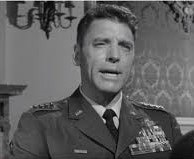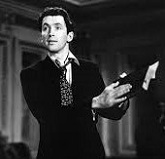|








|
Two Days, Two Weeks, and Two Movies


On Wednesday, January 6th, my mother called to tell me that a violent mob was ransacking the Capitol Building. I knew that the Senate would be ratifying the Presidential election results of the Electoral College and that there would be protests. I knew that far too many people believed the baseless claim that the election was somehow “stolen.” But never did I imagine that so many deranged rioters would attack the Capitol Dome, that they would kill two Capitol Police Officers, that they would bring a rope to hang the Vice-President, that they would parade the Confederate flag, that they would vandalize such a vital symbol of our democracy. The Capitol had not been invaded since the War of 1812. Not during the Civil War. Not through two world wars. Not in the unrest and riots of the late 60s. Not on 9/11. Adding to the horror was that the attackers were not a foreign enemy but U.S. citizens from across America unified by anger, hate and above all ignorance.
When I can, I look to films to provide some sort of perspective. Famed acting teacher Sanford Meisner said that “Acting is behaving truthfully under imaginary circumstances.” Taking that idea one step further, some films reveal truth through imaginary circumstances. One of those is John Frankenheimer’s Seven Days in May, from 1964. Burt Lancaster plays General James Mattoon Scott, a Chairman of the Joint Chiefs of Staff hell-bent on undoing a treaty with Russia signed by President Jordan Lyman (Frederic March). General Scott is so outraged by the treaty that attempts a coup to remove the President.
Seven Days in May feels dated in some ways. It’s very much a Cold War product. General Scott was loosely based on Major General Edwin Walker, who clashed with Presidents Eisenhower and Kennedy. General Walker used his position to espouse radical right-wing propaganda. President Kennedy was also concerned about the hawkish tendencies of some of his other generals, Curtis LeMay in particular. Kennedy encouraged the Seven Days in May filmmakers, and even arranged to be out of town one weekend so Frankenheimer could film in front of the White House. The scenes of violent protesters there must have been jarring at the time [1:48 mark], but now pale in comparison to the real-life thuggery at the Capitol.
In other ways though, the film still rings true. Take the scene of the audience cheering on General Scott. The looks on their faces and their frenzied response to a man they practically worship reminded me of some of the audiences we have seen on the news in the past few years. Later, I got chills down my spine when President Lyman states that “The enemy’s an age - a nuclear age. It happens to have killed man’s faith in his ability to influence what happens to him. And out of this comes a sickness, and out of sickness a frustration, a feeling of impotence, helplessness, weakness. And from this, this desperation, we look for a champion in red, white, and blue. Every now and then a man on a white horse rides by, and we appoint him to be our personal god for the duration. For some men it was a Senator McCarthy, for others it was a General Walker, and now it’s a General Scott.” I believe we can add a fourth man to that list, and doesn’t President Lyman’s description perfectly capture that man’s followers? The anger coming from a place of imagined victimization, and then turning that rage into mindless devotion to someone eagerly fanning the flames. What the great Rod Serling wrote nearly 60 years ago (adapting a book by Fletcher Knebe and Charles W. Bailey II) was eerily prescient.
The scariest part of Seven Days in May is that General Scott saw himself as the ultimate patriot. He was convinced that he was the one saving the nation. The January 6th rioters saw themselves that way too, even as they committed acts of domestic terrorism. They chanted “U.S.A!” and carried American flags (of course some also carried the Confederate flag, which Quentin Tarantino justifiably called “The American Swastika”). But both on film and in real life this is a false, phony patriotism. Its belief in America as long as it does what one wants it to do. If America doesn’t do what one wants, then it’s a willingness to destroy democracy in order to supposedly save it. The mob loved one man more than their country. To reconcile their fascist actions with their “patriotism,” they bought into the Big Lie, that the 2020 presidential election was rigged, even with absolutely no evidence to support this claim. They claimed to love America but showed contempt for its citizens and the democratic process. If President Lyman were here he might tell them, as he told General Scott, “You have such a fervent, passionate, evangelical faith in this country - why in the name of God don’t you have any faith in the system of government you’re so hell-bent to protect?”
On that horrible day I wondered if, two weeks later, America would have a peaceful transfer of power. Thankfully, and in no small part due to a massive military and law enforcement presence, the inauguration was free of violence and discord. Certainly I could feel added tension, with changes due to both the terrorism threat and COVID. But on the steps of the same Capitol building where rioters roamed the halls trying to overturn an election a new President was sworn in with pomp and pageantry. The democratic system worked the way it was supposed to.
The success of January 20th resonated with memories of another film, made 25 years before Seven Days in May. At first glance, Frank Capra’s Mr. Smith Goes to Washington is a million miles away from the current political discourse. It’s unabashedly sentimental, as Capra was never afraid to wear his heart on his sleeve. Even at the time, some called it “Capra-corn.” Frank Capra, Jr. explained that his father made the film in part due to the rise of fascism in Europe during the late 30s. He wanted to celebrate freedom and democracy because he feared that both could be taken away. When the naive young Senator Jefferson Smith (Jimmy Stewart) arrives in Washington, he’s overwhelmed by the sight of the Capitol dome, the Washington monument, and the Lincoln Memorial. Living in the D.C. area all of these years, the thrill of seeing these landmarks has passed. But the pictures on January 6th were so jarring in part because it reminded all of us that these symbols still matter, just as it mattered for Smith. The rioters had no respect for the Capitol building just as they had no respect for what it represented.
Smith’s naiveté leads to his devastation when he discovers corruption in the Senate, especially of another Senator he deeply admired. Eventually he fights back, staging a one-man filibuster by standing and talking for 24 straight hours. At one point he thunders “Get up there with that lady that’s up on top of this Capitol dome, that lady that stands for liberty. Take a look at this country through her eyes if you really want to see something. And you won’t just see scenery; you’ll see the whole parade of what Man’s carved out for himself, after centuries of fighting. Fighting for something better than just jungle law, fighting so he can stand on his own two feet, free and decent, like he was created, no matter what his race, color, or creed. That’s what you’d see. There’s no place out there for graft, or greed, or lies, or compromise with human liberties.” January 6th was the “jungle law” and January 20th was the freedom and decency.
Smith’s filibuster is so powerful because he’s not looking through the rose colored glasses he had at the start of the film. By this point Smith knows that American government and democracy is far from perfect, even less perfect than it may seem now. When the film came out, it was less than 20 years since women gained the right to vote, and many black citizens still did not have that right. Smith fought for democracy through democracy, not outside of it. He had authentic patriotism – belief in America even when it doesn’t do what you want. Trying to make it better nonviolently, and using the freedom one does have to make the nation freer for others.
The ending of Mr. Smith Goes to Washington never fails to put a lump in my throat. Telegrams and letters based on disinformation are brought to Smith to try to get him to stop. Smith, his voice hoarse and about ready to keel over, defiantly claims “You think I’m licked. You all think I’m licked. Well I’m not licked. And I’m gonna stay right here and fight for this lost cause. Even if this room gets filled with lies like these!” In 2020 America was blessed with many Mr. Smiths. They were state and local elections officials, Democrats, Republicans and independents, who tabulated the votes faithfully and honestly. Despite fierce political pressure to do otherwise, and in some cases even despite their natural political leanings, they made sure counties, cities and states had an accurate vote count. They withstood the massive disinformation campaign that would have had them place others’ judgements over the will of the people.
Maybe in some way we are all Mr. Smith. We’re exhausted by the chaos over the past few years, the antipathy shown to Americans by other Americans. We’ve seen TV, the internet, and social media often filled with lies. Decency, honesty, faith and real patriotism might sometimes seem like lost causes. But they are not, and, like Mr. Smith, we’re not licked. Not by a long shot.
Adam Spector
February 1, 2021
Contact us:  Membership Membership
For members only:  E-Mailing List
E-Mailing List
 Ushers Ushers
 Website Website
 All
Else All
Else
|